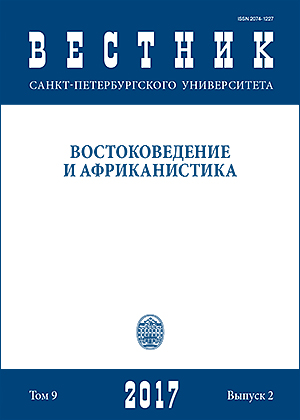Afropolitanism: alternative of cosmopolitanism or transformation of identity?
DOI:
https://doi.org/10.21638/11701/spbu13.2017.204Abstract
The article is dedicated to afropolitanism, a phenomenon that has arisen in the 21 st century among young African professionals, ambitious and focused on their careers, and ready to declare their readiness to oppose cosmopolitanism and thus defying the older generation. On the one hand, afropolitanism can be considered as an alternative to cosmopolitanism, and, on the other, both of its offspring (or a variety of it), cosmopolitanism with African roots (or an African face). In fact, it is the idea (or complex of ideas), philosophy (and aesthetics), research paradigm and the movement, replacing the Pan-Africanism and Negritude. The author of the article pays special attention to the new transcontinental identity, the formation of which is related to the mainstreaming activities of young African intellectuals, especially writers, positioning themselves in cyberspace as “AfriGen (Generation+Africa)”. They are the African “Talented Ten”: Taye Selassie, an Anglo-American writer of Nigerian-Ghanaian origin; Teju Cole and Chimamanda Ngozi Adichie, African American writers of Nigerian descent; Dinaw Mengestu, an Ethiopian-American writer and novelist; the blogger Minna Salami (Miss Afropolitan); and others.
Keywords:
Afropolitanism, cosmopolitanism, transcontinental identity, “AfriGen (Generation Africa)”, “New African Literature”, Taye Salassiie, cyberspace, Minna Salami, African Diaspora, intellectual history
Downloads
References
References
Downloads
Published
How to Cite
Issue
Section
License
Articles of "Vestnik of Saint Petersburg University. Asian and African Studies" are open access distributed under the terms of the License Agreement with Saint Petersburg State University, which permits to the authors unrestricted distribution and self-archiving free of charge.





